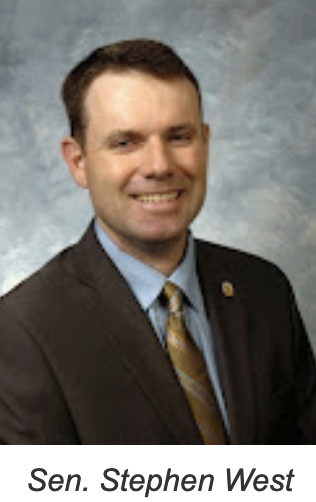Beshear said at a news conference March 23, “I believe a new regulation will allow for the continuation of vision, dental and hearing benefits.” That said, SB 65 requires any new regulation to be substantially different from the original.
Asked if the association supported SB 65, KDA President Don Heine gave Kentucky Health News a letter to KDA members that said, “It doesn’t serve our members or their patients to opine upon the political question of whether a regulation is deficient or not. Accordingly, we took no position on that political question.”
Heine said KDA would like to see both an expansion of basic dental services in Medicaid and larger reimbursements for providers, saying, “I don’t think there’s been a reasonable increase in Medicaid fees in 20 years.”
Low reimbursement rates are often cited as a reason dentists won’t accept Medicaid patients, but Heine said, “I think we have plenty of providers.” At other points in the interview, he said dental providers “will accommodate far more Medicaid patients when they’re at least not losing money” and “We’ve got to get the legislature to work with Medicaid providers to at least make the funding where people can be seen and we can prevent them from going to the emergency room.”
He cited a Texas A&M University study that found patients who go to the emergency room to treat preventable dental conditions costs U.S. taxpayers, hospitals and governments about $2 billion a year.
Earlier, KDA Executive Director Richard Whitehouse told Kentucky Health News, “We are not opposed to expanding Medicaid services. However, to expand those services and meet the needs of that population, we need to expand the network. We believe incentivizing more providers to join that network and enabling those already in to take on more patients does that. It also lowers the cost of health care by detecting disease earlier and avoids more costly emergency room visits.”
When the Senate initially passed the bill, Sen. Stephen Meredith, R-Leitchfield, said a reimbursement increase is especially needed in medically disadvantaged areas. In explaining his vote for SB 65, he also said the money could have been used to help the 5,000 children who are waiting for services from one of the state’s special Medicaid waiver programs.
In the House, as he supported Beshear’s veto, Rep. Chad Aull, D-Lexington, said, “We know that Kentucky has many challenges when it comes to some of our health outcomes. Why do we continue to shoot ourselves in the foot by taking away the opportunity to pay for health care for our citizens? I do not understand this legislature’s motive in trying to override this veto.”
Cabinet for Health and Family Services spokeswoman Susan Dunlap told the Courier Journal in October that federal funds would cover 90% of the expansion’s cost. Medicaid is primarily funded by the federal government.
